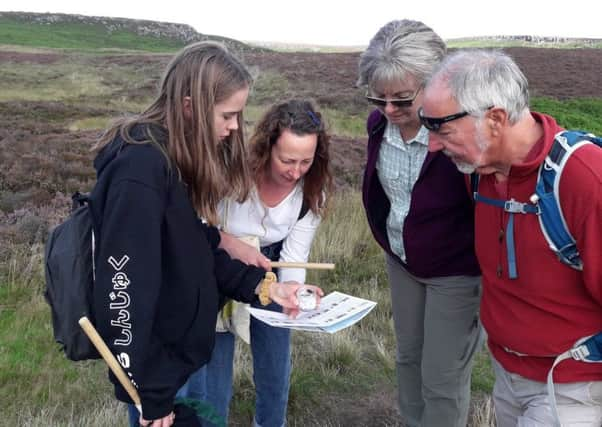Students challenged to help save struggling bumblebees


The Bumblebee Conservation Trust (BCT) has set up the Big BeeWalk Data Research Competition – which runs until February 7.
Those taking part will have access to the records of almost 400,000 bumblebees, gathered since 2010 through the Trust’s BeeWalk national recording scheme.
Advertisement
Hide AdAdvertisement
Hide AdThis citizen science survey – in which volunteers identify and count bumblebees they see while walking the same route monthly from March to October – builds a national picture of bumblebee health, and provides early warning of declines.


The vast set of BeeWalk data includes information on different bumblebee species and factors such as the weather, location, habitat type, and time of day of sightings – allowing a huge range of new and different research questions to be analysed, from how temperature affects bumblebee behaviour to how availability of specific plants can increase bumblebee numbers.
Andy Benson, BCT education officer, said: “By drawing on our unique BeeWalk data and using fresh thinking to design their own innovative research projects, students will be able to get involved in real-life science and develop skills desirable to universities – while potentially producing findings that could be used to boost practical conservation action to help bumblebees.
“It’s important because bumblebee populations have crashed over recent decades.
Advertisement
Hide AdAdvertisement
Hide Ad“We want students to think outside of the box and help shed new light on these remarkable insects whose hard work pollinates so many of our fruit and vegetables.
“The more we understand, the more we can do to reverse the plight of the bumblebee before it’s too late.”
Students aged 11-19 can take part in the competition – working on their own or as part of a team – to analyse the data, create their own research project and then submit their research as a fully fledged academic paper.
There will be four prize categories – most innovative project, most rigorous methodology, best presentation and overall winner.
For more information and to enter the competition, visit Bumblebee Conservation Trust